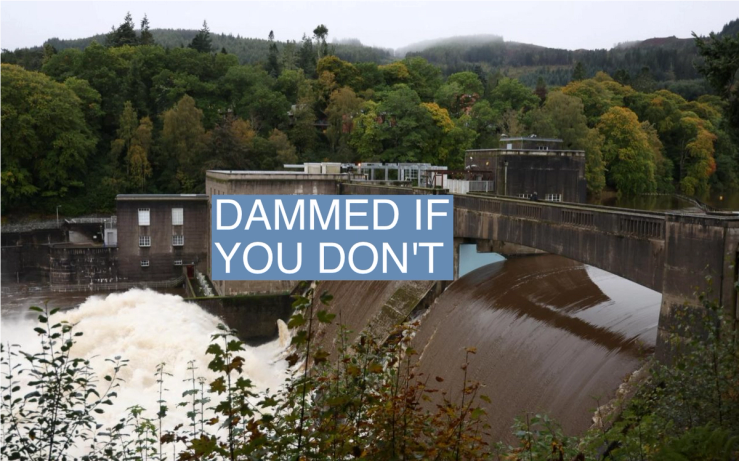The News
Climate change is affecting the water cycle — and in turn, hampering the capabilities of hydroelectric power.
Erratic rain and drought means that dams are both under- and over-supplied, meaning that some hydroelectric plants are either running low on water, or must offload excesses, risking floods.
SIGNALS
Dams were designed for more stable weather patterns, Saqib Rahim notes in Wired. Now, it’s harder to predict when dams might get water, or how much they will receive. The shift is prompting some experts to advocate for wind and solar power, which will see less disruption as climate change progresses. “We need to really reexamine plans to develop new hydropower,” said Josh Klemm, co-executive director of International Rivers. “We’re only going to deepen our reliance on a climate-vulnerable energy source.”
In the U.S. and Canada, which receive an overwhelming amount of power from hydroelectricity, dams constructed in the 1960s need significant upgrades in order to be more efficient, Katie Kouchakji wrote for Energy Monitor last year. At the same time, however, the dams can provide some shield from the impacts of changing weather patterns: “Flood control or drought management are obvious multi-purpose benefits from dams,” Alex Campbell of the International Hydropower Association told EM.
Climate change is affecting hydro worldwide, but the impacts aren’t consistent because there are different regional factors at play. Increased water evaporation and demand, glacier melt, precipitation extremes, and reduced snow melts are all factors that could disrupt hydro power, Asphota Wasti, lead author of a global review on hydroelectricity, told Columbia University’s GlacierHub.



